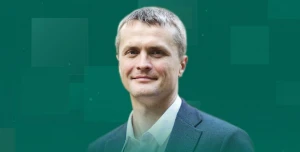
Iran is in trouble and Patrushev visits it to prevent it from stepping back
Serhiy Danilov, deputy director of Center of Middle Eastern Studies, noted that Iranian political elites have ambiguous attitude to continuation of military cooperation with Russia
He shared his opinion live on air on Espreso TV channel.
"One of the versions of Patrushev's (Secretary of Russian Defense Security Service, - ed.) visit to Iran is that Tehran begins to understand the mess it got into and is trying to take a step back. And Patrushev came to reverse situation and return it to that state, for Iranians to supply missiles. We will know very soon what supplies Iran has limited itself to and whether they will actually deliver medium-range missiles of 300 and 700 km,", deputy director of Center of Middle East Studies commented.
Serhiy Danilov noted regarding the report by Sky News (British news channel - ed.) that specific people and companies in Iran concluded super deal and sold their attack UAVs worth $20,000 each for $1 million. Of course, within the country, such agreement will change nothing, but it is profitable for specific people to receive $140 million in cash.
Accordingly, Russia will be ready to pay $2 million for anything in order to continue receiving weapons.
"But there are some signals that already show ambiguous attitude of Iranian political elites to continuation of military cooperation with Russia. Therefore, if elites split, it will affect Iran's external activity, primarily cooperation with Russia. Iranian society and some of the ruling elites are very negative about supply of weapons to Russia for war against Ukraine. Absolute majority of Iranians are on the side of Ukraine, which they consider a victim of unjust imperial war. And this is one of the reasons for those signals that among the elites of Iran they begin to think about whether they are doing the right thing. Accordingly, if there is a split of the elites and political representation among protest forces, then protest can really turn into successful revolution", Danilov explained.
- News













































